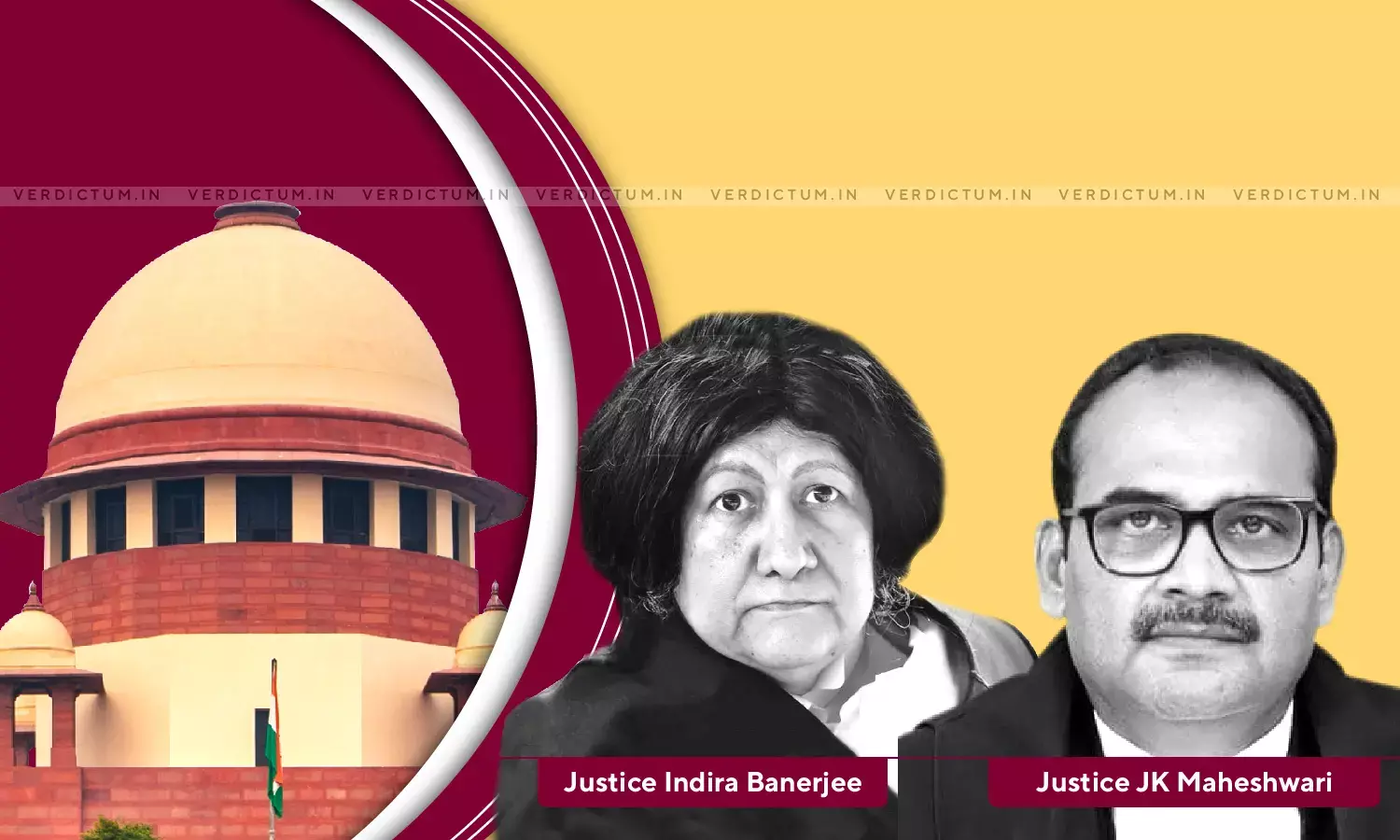Employer Cannot Be Compelled To Appoint A Person Having Criminal Antecedents And Is Not Of An Impeccable Character – Supreme Court
A two-judge Bench of Justice Indira Banerjee and Justice JK Maheshwari has held that in a situation where a person has merely disclosed the offence alleged against him and the result of the trial, the employer cannot be compelled to give an appointment to the candidate.
An appeal was preferred against the judgment of the Division Bench of the Madhya Pradesh High Court which had dismissed the appeal of the Appellant employer and upheld the judgment of the Single Bench of the High Court. The Single Bench had allowed the writ petition of the Respondent by directing the Appellant to take the Respondent for training and granting him all the associated benefits.
In this case, the Respondent was shortlisted for a post in Central Industrial Security Force (CISF). While submitting his attestation form, he mentioned the criminal case against him and his acquittal from the charges under sections 347/327/323/506 (PartII) and 364A IPC in the trial. The acquittal was for the reason that the alleged victim of kidnapping turned hostile.
The Standing Screening Committee of CISF passed an order that the Respondent was not eligible for appointment.
The Appellant argued before the Court that the Respondent was not 'honorably acquitted' of charge involving moral turpitude. It was contended that acquittal granting the benefit of doubt, as the witness had turned hostile, would not make the candidate suitable for appointment.
The Apex Court, while explaining the term 'honorable acquittal', observed that if the acquittal is based upon consideration of facts and evidence with the finding that the guilt was not proved or accepting the explanation of the accused as just, it would be treated as an honorable acquittal.
The Court also held that if the Prosecution could not prove guilt for some other reasons and the accused was not 'honorably acquitted' by Court, it is treated as acquittal other than 'honorable', and the proceedings may follow.
"In a case of departmental proceedings, the guilt may be proved on the basis of preponderance and probabilities, it is thus observed that acquittal giving benefit of doubt would not automatically lead to reinstatement of candidate unless the rules provide so," the Bench opined.
"It is clear that the employer is having right to consider the suitability of the candidate as per government orders/instructions/rules at the time of taking the decision for induction of the candidate in employment. Acquittal on technical ground in respect of the offences of heinous/serious nature, which is not a clean acquittal, the employer may have a right to consider all relevant facts available as to the antecedents, and may take appropriate decision as to the continuance of the employee. Even in case, truthful declaration regarding concluded trial has been made by the employee, still the employer has the right to consider antecedents and cannot be compelled to appoint the candidate," the Court held.
The Court clarified that the Respondent who wished to join the police force must be a person of utmost rectitude and have impeccable character and integrity.
"A person having a criminal antecedents would not be fit in this category. The employer is having right to consider the nature of acquittal or decide until he is completely exonerated because even a possibility of his taking to the life of crimes poses a threat to the discipline of the police force," the Court asserted.
The Court held, "If a person is acquitted giving him the benefit of doubt, from the charge of an offence involving moral turpitude or because the witnesses turned hostile, it would not automatically entitle him for the employment, that too in disciplined force. The employer is having a right to consider his candidature in terms of the circulars issued by the Screening Committee. The mere disclosure of the offences alleged and the result of the trial is not sufficient. In the said situation, the employer cannot be compelled to give appointment to the candidate."
In the light of these observations, the Court allowed the appeal and set aside the judgment passed by the Division Bench of the Madhya Pradesh High Court.




